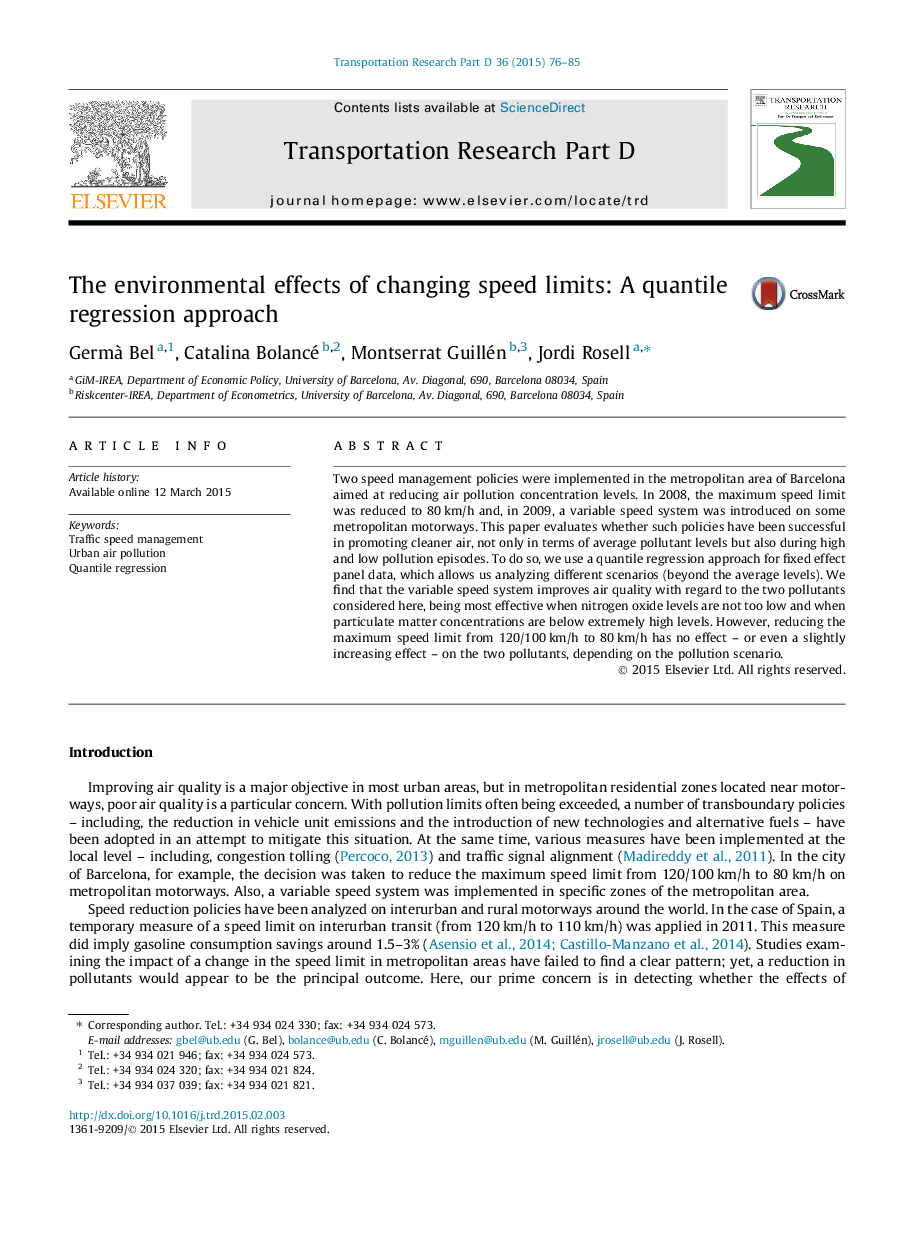| Article ID | Journal | Published Year | Pages | File Type |
|---|---|---|---|---|
| 7500486 | Transportation Research Part D: Transport and Environment | 2015 | 10 Pages |
Abstract
Two speed management policies were implemented in the metropolitan area of Barcelona aimed at reducing air pollution concentration levels. In 2008, the maximum speed limit was reduced to 80Â km/h and, in 2009, a variable speed system was introduced on some metropolitan motorways. This paper evaluates whether such policies have been successful in promoting cleaner air, not only in terms of average pollutant levels but also during high and low pollution episodes. To do so, we use a quantile regression approach for fixed effect panel data, which allows us analyzing different scenarios (beyond the average levels). We find that the variable speed system improves air quality with regard to the two pollutants considered here, being most effective when nitrogen oxide levels are not too low and when particulate matter concentrations are below extremely high levels. However, reducing the maximum speed limit from 120/100Â km/h to 80Â km/h has no effect - or even a slightly increasing effect - on the two pollutants, depending on the pollution scenario.
Related Topics
Life Sciences
Environmental Science
Environmental Science (General)
Authors
Germà Bel, Catalina Bolancé, Montserrat Guillén, Jordi Rosell,
